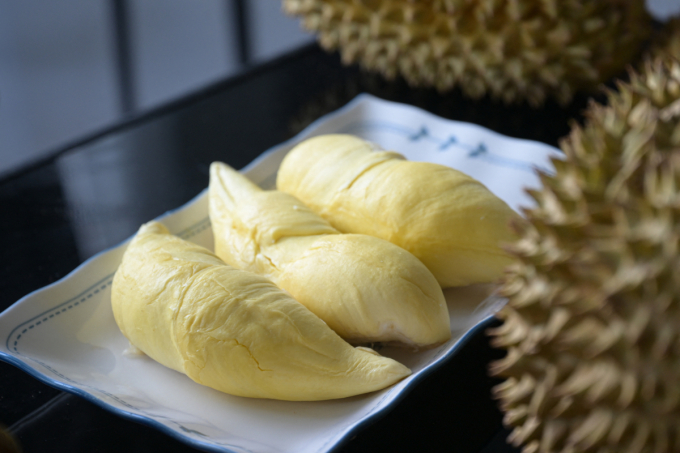China's Growing Durian Industry
Chinese companies have been experimenting with growing durian in Hainan for the past five years, aiming to reduce reliance on imports and ensure fresher fruit for consumers. The cultivation area has seen a dramatic increase, from 700 hectares in 2020 to 2,600 hectares today.

Domestic durian pulps at a durian base in Sanya City, south China's Hainan Province. Photo by Xinhua via AFP
Price and Production Challenges
Currently, Hainan durian retails for CNY100 (US$13.93) per kilogram, significantly higher than Vietnamese imports. Experts hope prices will drop to CNY20 as production scales up, but this requires overcoming climatic challenges and optimizing technologies.
Impact on Vietnamese Exports
Vietnam remains a key durian supplier to China, with exports worth nearly $7 billion last year. Despite Hainan's expansion, experts believe it won't immediately threaten Vietnam's market share due to China's vast demand and Hainan's production limitations.
Future Prospects
Hainan aims to expand durian cultivation to 6,600 hectares by 2028, incorporating advanced technologies. However, analysts suggest it will take years for China to significantly impact the regional market. Meanwhile, Vietnam focuses on improving quality and branding to maintain its competitive edge.









Comments